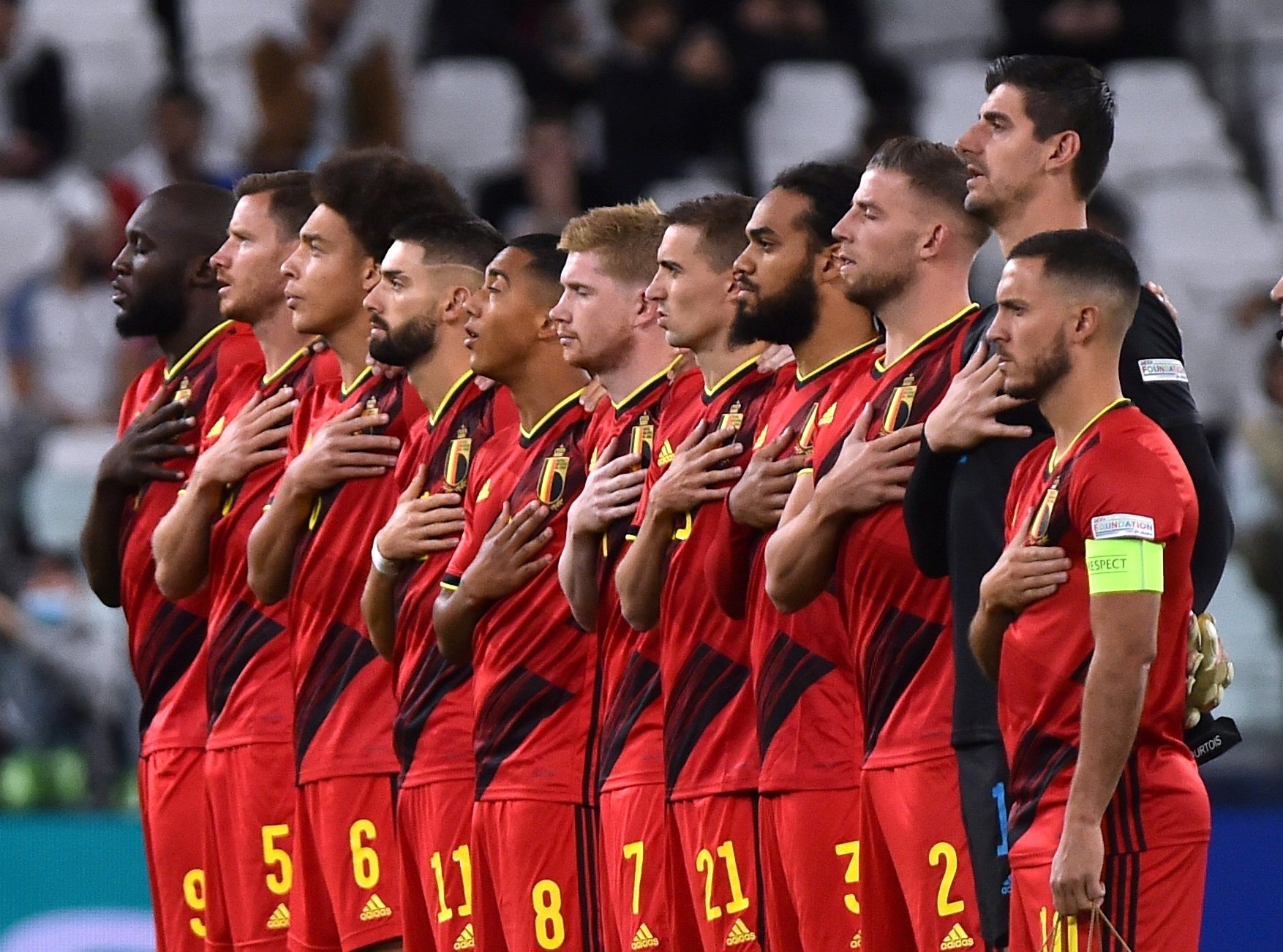“The Future of Football in Belgium: Challenges, Opportunities, and Strategies for Continued Success
Related Articles The Future of Football in Belgium: Challenges, Opportunities, and Strategies for Continued Success
The Future of Football in Belgium: Challenges, Opportunities, and Strategies for Continued Success

Belgian football has experienced a golden era over the past decade, marked by the rise of the Red Devils as a global force and the emergence of world-class talents. However, maintaining this level of success requires a forward-thinking approach, addressing challenges, and capitalizing on opportunities to ensure a bright future for Belgian football. This article explores the key aspects that will shape the future of football in Belgium, including youth development, infrastructure, competitive balance, and international competitiveness.
Youth Development: The Foundation of Future Success
The success of Belgian football in recent years can be largely attributed to its focus on youth development. The Belgian FA, clubs, and academies have invested heavily in creating a nurturing environment for young talents to flourish. To maintain this momentum, several key areas need attention:
-
Enhancing Coach Education: Investing in coach education programs is crucial to ensure that young players receive high-quality instruction at all levels. By providing coaches with the latest training methodologies, tactical knowledge, and player development strategies, Belgium can continue to produce well-rounded footballers.
-
Expanding Talent Identification: Belgium must broaden its talent identification network to discover hidden gems from diverse backgrounds and regions. This includes investing in scouting programs, establishing partnerships with local communities, and utilizing data analytics to identify players with potential.
-
Promoting Individualized Training: Recognizing that each player has unique strengths and weaknesses, individualized training programs should be implemented to cater to their specific needs. This approach allows young talents to develop their skills at their own pace, maximizing their potential.
-
Strengthening the Academy System: The academy system plays a vital role in nurturing young talents and preparing them for professional football. To further strengthen the system, Belgium should focus on providing state-of-the-art facilities, qualified staff, and a holistic development approach that encompasses technical, tactical, physical, and mental aspects.

Infrastructure: Building the Foundation for Growth
Adequate infrastructure is essential for the development and growth of football in Belgium. This includes modern stadiums, well-equipped training facilities, and advanced sports science centers. To enhance infrastructure, Belgium should:
-
Invest in Stadium Upgrades: Many Belgian stadiums are outdated and lack modern amenities. Investing in stadium upgrades will not only improve the fan experience but also provide better facilities for players and staff.
-
Develop State-of-the-Art Training Facilities: Modern training facilities are crucial for player development and performance. Belgium should invest in creating world-class training centers equipped with the latest technology, sports science equipment, and rehabilitation facilities.
-
Promote Sustainable Infrastructure Development: As Belgium invests in new infrastructure, it is important to prioritize sustainability and environmental responsibility. This includes incorporating green building practices, utilizing renewable energy sources, and minimizing the environmental impact of football activities.
Competitive Balance: Ensuring a Level Playing Field
Maintaining competitive balance in the Belgian Pro League is crucial for the long-term health and success of Belgian football. A league where only a few teams dominate can stifle competition and hinder the development of young players. To promote competitive balance, Belgium should:
-
Implement Financial Fair Play Regulations: Financial Fair Play regulations are essential to prevent clubs from spending beyond their means and creating an uneven playing field. By enforcing these regulations, Belgium can ensure that clubs compete based on their sporting merits rather than their financial resources.
-
Promote Revenue Sharing: Revenue sharing mechanisms can help redistribute wealth among clubs, providing smaller teams with the resources they need to compete. This can be achieved through a more equitable distribution of television revenue, sponsorship deals, and gate receipts.
-
Encourage Investment in Youth Development: Clubs that invest in youth development should be rewarded for their efforts. This can be achieved through financial incentives, such as grants and tax breaks, that encourage clubs to prioritize youth development.
-
Strengthen League Governance: Strong league governance is essential to ensure fair play, transparency, and accountability. Belgium should invest in strengthening its league governance structures, including the appointment of independent officials and the implementation of robust regulatory frameworks.
International Competitiveness: Maintaining a Global Presence
Belgium has established itself as a major force in international football, with the Red Devils consistently ranking among the top teams in the world. To maintain this level of competitiveness, Belgium should:
-
Continue to Produce World-Class Talents: The key to success in international football is having a pool of world-class players. Belgium must continue to invest in youth development to ensure that it produces a steady stream of talented footballers who can compete at the highest level.
-
Develop a Clear Tactical Identity: A clear tactical identity is essential for success in international football. Belgium should develop a distinct playing style that reflects its strengths and allows it to compete against a variety of opponents.
-
Promote Team Cohesion: Team cohesion is crucial for success in international football. Belgium should foster a strong team spirit and create an environment where players from different backgrounds and clubs can come together and work towards a common goal.
-
Invest in Sports Science and Technology: Sports science and technology play an increasingly important role in modern football. Belgium should invest in these areas to ensure that its players have access to the latest training methods, performance analysis tools, and injury prevention strategies.
Addressing Key Challenges
While Belgian football has made significant strides in recent years, several challenges must be addressed to ensure continued success:
-
Preventing Brain Drain: As Belgian players gain recognition on the international stage, they are often lured away by wealthier clubs in other countries. This "brain drain" can weaken the Belgian Pro League and hinder the development of young players. To address this challenge, Belgium should:
-
Offer Competitive Salaries: Belgian clubs must offer competitive salaries to retain their best players. This can be achieved through increased revenue generation, improved financial management, and a more equitable distribution of wealth among clubs.
-
Promote the Belgian Pro League: The Belgian Pro League must be promoted as a top-tier league that offers players the opportunity to develop their skills and compete at the highest level. This can be achieved through increased media coverage, improved marketing, and a focus on showcasing the league’s unique qualities.
-
Create a Supportive Environment: Belgian clubs must create a supportive environment for players, providing them with the resources and support they need to succeed. This includes access to high-quality training facilities, qualified staff, and a strong support network.
-
-
Combating Racism and Discrimination: Racism and discrimination remain a persistent problem in football, and Belgium is no exception. To address this challenge, Belgium should:
-
Implement Strict Anti-Racism Policies: Belgium must implement strict anti-racism policies that are enforced consistently and effectively. This includes zero tolerance for racist behavior, mandatory education programs, and severe penalties for offenders.
-
Promote Diversity and Inclusion: Belgium should promote diversity and inclusion at all levels of football, from the boardroom to the pitch. This includes creating opportunities for people from diverse backgrounds to participate in football and ensuring that everyone feels welcome and respected.
-
Raise Awareness: Belgium should raise awareness about the issue of racism and discrimination in football through education campaigns, public service announcements, and partnerships with community organizations.
-
-
Enhancing Fan Engagement: Engaging fans is crucial for the long-term health and success of Belgian football. To enhance fan engagement, Belgium should:
-
Improve the Fan Experience: Belgian clubs must improve the fan experience by providing modern stadiums, affordable ticket prices, and engaging matchday activities.
-
Utilize Digital Technology: Belgium should utilize digital technology to connect with fans and provide them with access to information, entertainment, and interactive experiences. This includes developing mobile apps, creating engaging social media content, and offering live streaming of matches.
-
Engage with Local Communities: Belgian clubs should engage with local communities by organizing events, supporting charitable causes, and providing opportunities for people to participate in football.
-
Strategies for Continued Success
To ensure a bright future for Belgian football, the following strategies should be implemented:
-
Invest in Research and Development: Belgium should invest in research and development to stay at the forefront of football innovation. This includes exploring new training methods, developing advanced sports science tools, and utilizing data analytics to improve player performance.
-
Foster Collaboration: Collaboration between the Belgian FA, clubs, academies, and other stakeholders is essential for success. This includes sharing best practices, coordinating youth development programs, and working together to promote the interests of Belgian football.
-
Embrace Innovation: Belgium should embrace innovation and be open to new ideas and approaches. This includes experimenting with new technologies, exploring alternative playing styles, and adapting to the changing landscape of football.
-
Promote Ethical Behavior: Ethical behavior is essential for the long-term health and success of Belgian football. This includes promoting fair play, transparency, and accountability at all levels of the game.
Conclusion
The future of football in Belgium is bright, but it requires a proactive and forward-thinking approach. By focusing on youth development, infrastructure, competitive balance, and international competitiveness, Belgium can maintain its position as a leading force in world football. Addressing key challenges such as preventing brain drain, combating racism and discrimination, and enhancing fan engagement is crucial for ensuring a sustainable and inclusive future for Belgian football. By implementing the strategies outlined in this article, Belgium can continue to produce world-class talents, compete at the highest level, and inspire future generations of footballers.

